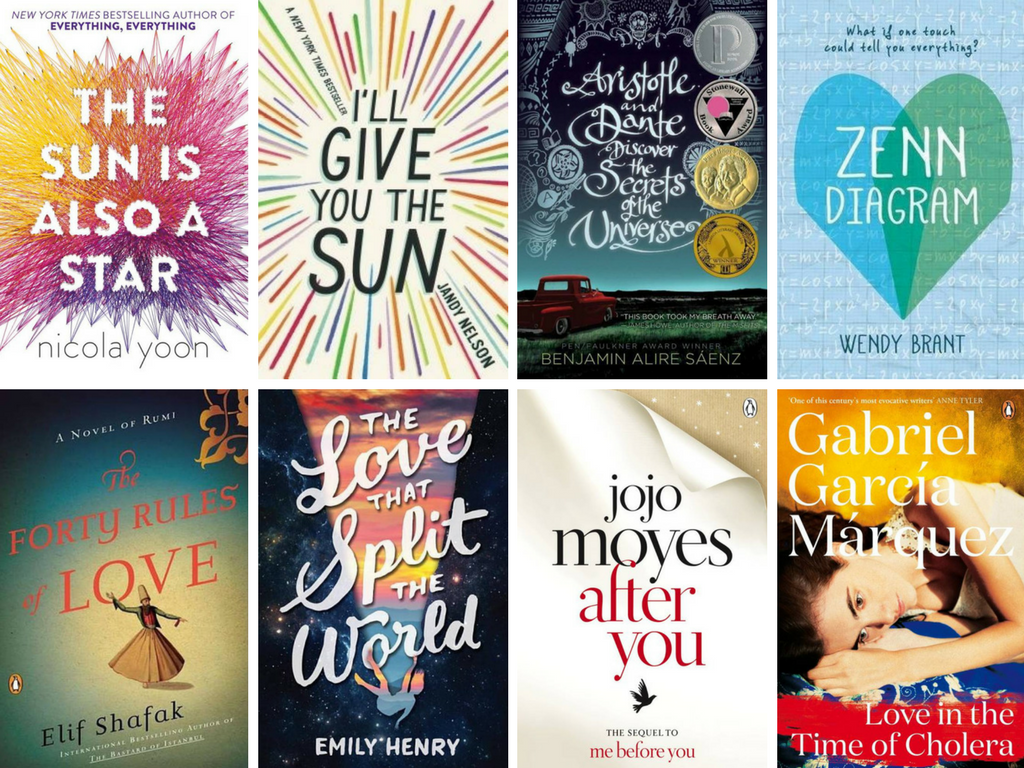“This is what I want: I want to grab my brother’s hand and run back through time, losing years like coats falling from our shoulders.”
― Jandy Nelson, I’ll Give You the Sun
It’s Rakhi time! Siblings are always around through all our ups and down. But this is one day we act civil to each other instead of beating each other up or calling silly names. We show gratitude and our awkward love through gifts and a band. But if you’d rather give your sibling a book, here are your options. Most of these books I have read and forced my brother to read.
I’ll Give You the Sun by Jandy Nelson: This book is magic. I want to live in it and never come out. When I read this book, I was in tears. I immediately called my brother and sister and asked them to read this book. How could I possibly not when Noah says things like this, “Unlike most everyone else on earth, from the very first cells of us, we were together, we came here together. This is why no one hardly notices that Jude does most of the talking for both of us, why we can only play the piano with all four of our hands on the keyboard and not at all alone, why we can never do Rochambeau because not once in thirteen years have we chosen differently. It’s always: two rocks, two papers, two scissors. When I don’t draw us like this, I draw us as half-people.”

At first, Jude and her twin brother Noah, are inseparable. Noah draws constantly and is falling in love with the charismatic boy next door, while daredevil Jude wears red-red lipstick, cliff-dives, and does all the talking for both of them. Years later, they are barely speaking. Something has happened to change the twins in different yet equally devastating ways . . . but then Jude meets an intriguing, irresistible boy and a mysterious new mentor. The early years are Noah’s to tell; the later years are Jude’s. But they each have only half the story, and if they can only find their way back to one another, they’ll have a chance to remake their world.
To Kill a Mockingbird by Harper Lee: Four years older than Scout, Jem is the archetypal older brother, taking charge of the games focused on their reclusive neighbour Boo Radley and taunting Scout with the name “Miss Priss”. The relationship changes as the children grow up, typified by Jem’s adolescent moodiness and instruction to Scout that she isn’t to bother him at school but “stick to the first grade”. By the end of the novel, the two are reconciled, and echoes of their old familiarity emerge. Siblings do grow apart. I wish there were a way to change it.
The Hate U Give by Angie Thomas: You already know we LOVE the Carter siblings, and honestly, one of our favourite things about the book is their banter and bickering. It’s so silly, so fun, and so real–on the page and on-screen! They are EVERYTHING, and we honestly don’t deserve this fictional family. Sixteen-year-old Starr lives in two worlds: the poor neighbourhood where she was born and raised and her posh high school in the suburbs. The uneasy balance between them is shattered when Starr is the only witness to the fatal shooting of her unarmed best friend, Khalil, by a police officer. Now what Starr says could destroy her community. It could also get her killed.
Purple Hibiscus by Chimamanda Ngozi Adichie: When Nigeria begins to fall apart under a military coup, Kambili’s father sends her and her brother, Jaja, away to stay with their aunt, a University professor, whose house is noisy, full of laughter, Books crammed shelves, curry and nutmeg permeate the air, a. There, Kambili and her brother discover a life and love beyond the confines of their father’s authority. And honestly, it’s such a precious experience watching these two grow. I still sometimes can see Kambili travelling on a bus to see her brother Jaja.
Fifteen-year-old Kambili and her older brother Jaja lead a privileged life in Enugu, Nigeria. They live in a beautiful house, with a caring family, and attend an exclusive missionary school. They’re completely shielded from the troubles of the world. Yet, as Kambili reveals in her tender-voiced account, things are less perfect than they appear. Although her Papa is generous and well respected, he is fanatically religious and tyrannical at home—a home that is silent and suffocating.
The God of Small Things by Arundhati Roy: I read it a long time ago, but I remember feeling warm reading about those siblings. The story of an affluent Indian family forever changed by one fateful day in 1969. The seven-year-old twins Estha and Rahel see their world shaken irrevocably by the arrival of their beautiful young cousin, Sophie. It is an event that will lead to an illicit liaison and tragedies accidental and intentional, exposing “big things [that] lurk unsaid” in a country drifting dangerously toward unrest. Lush, lyrical, and unnerving, The God of Small Things is an award-winning landmark that started for its author an esteemed career of fiction and political commentary that continues unabated.
Franny and Zooey by J.D Salinger: The novella, Zooey, is named for Zooey Glass, the second-youngest member of the Glass family. As his younger sister, Franny suffers a spiritual and existential breakdown in her parents’ Manhattan living room — leaving Bessie, her mother, deeply concerned — Zooey comes to her aid, offering what he thinks is brotherly love, understanding, and words of sage advice.
And the Mountains Echoed by Khaled Hosseini: Afghanistan, 1952. Abdullah and his sister Pari live with their father and stepmother in the small village of Shadbagh. Their father, Saboor, is constantly in search of work, and they struggle together through poverty and brutal winters. To Adbullah, Pari, as beautiful and sweet-natured as the fairy for which she was named, is everything. More like a parent than a brother, Abdullah will do anything for her, even trading his only pair of shoes for a feather for her treasured collection. Each night they sleep together in their cot, their skulls touching, their limbs tangled. One day the siblings’ journey across the desert to Kabul with their father. Pari and Abdullah have no sense of the fate that awaits them there, for the event which unfolds will tear their lives apart; sometimes a finger must be cut to save the hand.
Finding Audrey by Sophie Kinsella: The banter of Audrey and her brother made me laugh so much. You will find out on the first page itself how precious this book is. Audrey can’t leave the house. She can’t even take off her dark glasses inside the house. Then her brother’s friend Linus stumbles into her life. With his friendly, orange-slice smile and his funny notes, he starts to entice Audrey out again – well, Starbucks is a start. And with Linus at her side, Audrey feels like she can do the things she’d thought were too scary. Suddenly, finding her way back to the real world seems achievable.
My Sister’s Keeper by Jodi Picoult: Although this book is about two sisters, but this is the epitome of siblings love. I couldn’t help but include this book on the list. Anna is not sick, but she might as well be. By age thirteen, she has undergone countless surgeries, transfusions, and shots so that her older sister, Kate, can somehow fight leukemia that has plagued her since childhood. The product of preimplantation genetic diagnosis, Anna was conceived as a bone marrow match for Kate—a life and a role that she has never challenged… until now. Like most teenagers, Anna is beginning to question who she truly is. But unlike most teenagers, she has always been defined in terms of her sister—and so Anna makes a decision that for most would be unthinkable, a decision that will tear her family apart and have perhaps fatal consequences for the sister she loves.
All the Light We Cannot See by Anthony Doerr: This is the story about war but also how the war affects these two siblings. In a mining town in Germany, Werner Pfennig, an orphan, grows up with his younger sister, enchanted by a crude radio they find that brings them news and stories from places they have never seen or imagined. Werner becomes an expert at building and fixing these crucial new instruments and is enlisted to use his talent to track down the resistance. Deftly interweaving the lives of Marie-Laure and Werner, Doerr illuminates the ways, against all the odds, people try to be good to one another























